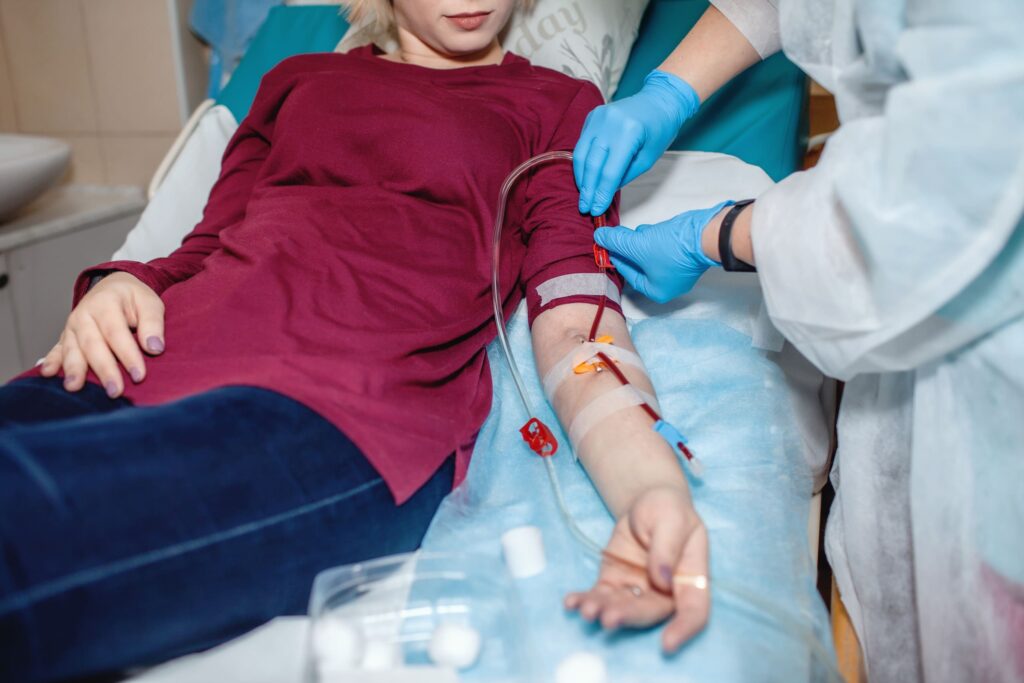I’m Starting Dialysis: What Can I Expect?

Starting dialysis can be a significant adjustment, but understanding what to expect can help ease your transition. Dr. Sadeddin and his dedicated team at Texas Advanced Renal Health are here to guide and support you every step of the way. We are always happy to answer your questions and provide personalized care and support to help you thrive once again!
Why Would You Need Dialysis?
Your kidneys are essential organs that help maintain your electrolyte balance and filter toxins, waste products, and excess fluid from your blood into your urine. If they can no longer perform their essential functions, dangerous levels of electrolytes, toxins, waste, and fluid can build up in your body.
There are only two viable options to manage kidney failure: dialysis or a kidney transplant. A transplant isn’t always an immediate option, due to donor matches, waiting lists, and many other considerations. Dialysis is a life-saving option that will allow you to continue pursuing your passions and enjoying time with your loved ones.
What Are Warning Signs You Need Dialysis?
The following are the most common signs of kidney failure requiring dialysis:
- A decrease or increase in urine output or bubbly or foamy urine
- Swelling of the legs, feet, and ankles due to excess fluids
- Shortness of breath or chest pain due to fluid buildup in the lungs and around the heart
- Increased blood pressure that’s hard to control
- Decreased mental sharpness, headaches, fatigue, weakness
- Loss of appetite, nausea, or vomiting
- Itching or numbness due to toxic buildup
- Ammonia breath or a metallic taste in the mouth
- Muscle cramps and bone pain due to electrolyte imbalances
- Sleep disturbances and changes in skin color
While these warning symptoms do not always mean you require dialysis, they warrant an evaluation. Dr. Sadeddin and his team at Texas Advanced Renal Health will help manage your condition, ensuring the best possible outcomes.
Understanding Dialysis
Dialysis performs the critical functions of your kidneys, such as filtering toxins, fluid, and waste from your blood. There are two main types of dialysis: hemodialysis and peritoneal dialysis.
- Hemodialysis: This type of dialysis involves circulating your blood through a machine that filters and cleans it before returning it to your body. It typically takes place at a dialysis center three times a week, with each session lasting about 3-4 hours. However, with proper training and equipment, hemodialysis can also be performed conveniently at home.
- Peritoneal Dialysis: This type of dialysis removes waste and excess fluids by using the peritoneum, the lining of the abdomen, as a natural filter. A dialysis solution is introduced into the abdomen through a permanent tube called a catheter in the belly. This fluid absorbs waste products from the blood. Peritoneal dialysis typically occurs at home and can be done at various times during the day or overnight.
Dr. Sadeddin will recommend the dialysis option best suited for your unique needs.
Lifestyle Adjustments with Dialysis
Living with dialysis comes with challenges and changes to your daily routine. The good news is that once you adjust to treatment, you’ll feel better than you’ve felt in a long time. Make sure you manage your fluid intake and follow a kidney-friendly diet as recommended. Set reminders to take your prescribed medications and make sure you continue regular physical activity.
If you feel stressed or anxious about the process or have any questions, contact our team at Texas Advanced Renal Health. We are happy to offer resources and support to empower you and ensure you continue living your life to the fullest.
Trusted Kidney Care Near Me in McKinney, TX
If you need dialysis, Dr. Sadeddin and his patient-centered team at Texas Advanced Renal Health are for you. We will manage your dialysis care and treatment and ensure you continue living life to the fullest. We are here to support you every step of the way. We invite you to call 972-548-4833 or visit us online to schedule your appointment today!
